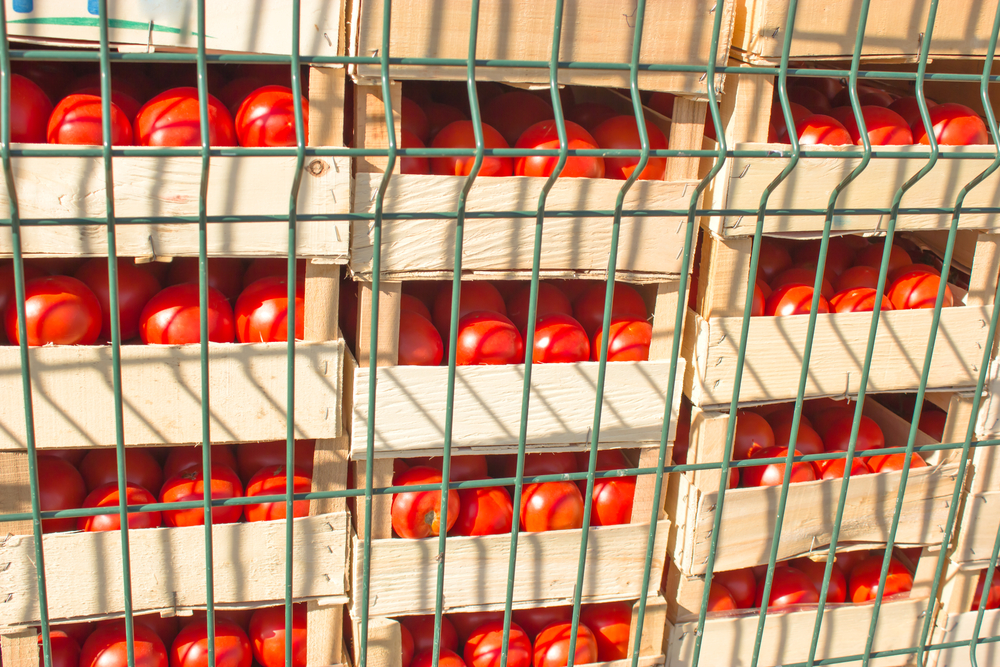In mid-May of this year, the Food and Drug Administration (FDA) finally told consumers it is safe to resume purchasing and eating romaine lettuce following an outbreak of E.coli linked to romaine lettuce products. The reason isn’t that the exact source was found or the outbreak contained, but that the growing season of the region affected had ended and it was unlikely that any contaminated romaine lettuce remained fresh enough to eat. Meanwhile, an outbreak of salmonella in eggs is ongoing even though it has been traced.
These two incidents illustrate the need for improved sanitation in the food supply chain. In order to prevent exactly these types of outbreaks, Congress enacted the Food Safety Modernization Act (FSMA), empowering the FDA to create and enforce new rules for food production, handling, storage, and transportation. The FSMA went into full effect for businesses large and small on April 4, 2018. Complying with the Food Safety and Modernization Act is now a legal requirement, and because it gives the FDA more power–including to perform inspections, mandate recalls, and suspend the registration of food facilities–it’s now especially crucial that food producers, transporters, and retailers put stringent food safety measures into place. Doing so is a challenge, but switching shipping platforms from wood pallets to plastic pallets is one change that benefits the entire supply chain, making it easier to meet–and perhaps even exceed–the standards of the FSMA.

Transportation Standards Laid Down by the Food Safety Modernization Act
The FSMA is about preventative controls–rather than about catching problems after the fact–and third-party certification to ensure those preventative controls are effective. When it comes to pallets, the FSMA rule on the sanitary transportation of human and animal food gives several rulings, decisions, and clarifications that show the problems wood pallets can cause in the food supply chain. However, many of these issues can be effectively addressed by switching to a plastic pallet. Below are a few statements from the FDA rule, along with ways that plastic pallets can help with compliance:
FDA Rule Implementing FSMA: “…vehicles and transportation equipment must be maintained in such sanitary condition for their intended use to prevent food from becoming adulterated.”
- Plastic pallets are easily sanitized: While thoroughly cleaning wood pallets is nearly impossible (and, done improperly, can actually contribute to mold problems), fluids and bacteria are confined to the surface of plastic pallets where they can be easily removed or treated. This keeps food safe and prevents bacteria from contaminating equipment and work areas.
FDA Clarification Comment on the Rule: “…pallets should not have jagged edges that protrude into the carrying surface in a way that could damage the product being shipped, e.g., wood splinters that could puncture food containers.”
- Durable plastics stay intact: Anyone working in the supply chain knows that wood pallets are constantly being damaged and repaired or replaced and that they have the tendency to break, splinter, and leave behind debris. Plastic pallets are far more durable and capable of making 80 to 100 trips through a supply chain, while reusable wood pallets are able to make only about 20 trips. This increased durability makes it much less likely that logistics and warehouse workers will ever deal with jagged edges on a pallet, and removes any concern about wood splinters contaminating food products.
FDA Rule Implementing FSMA: “…vehicles and transportation equipment must be stored in a manner that prevents it from harboring pests or becoming contaminated in any other manner that could result in food for which it will be used becoming unsafe during transportation operations.”
- Non-absorbent plastic resists pests and mold: Unlike wood pallets, which when stored outside tend to attract and harbor bugs and even grow mold and mildew, plastic pallets aren’t as inviting to pests and aren’t easily eaten or used as a hideout by wood-loving insects. And because plastic pallets don’t absorb moisture or fluids from product or chemical spills, they are less likely to become contaminated or moldy, whether they’re stored outside or inside.
These three advantages help food producers, their transportation fleets, and their partners maintain clean facilities and vehicles. Plastic pallets act as a preventative control to help keep food, warehouses, and trailers from becoming contaminated with bacteria or debris. This allows companies to meet FSMA requirements without having to adopt many new procedures to manage their pallets.
Exceeding the Food Safety Modernization Act Standards with Reliable Plastic Pallets
Key elements in complying with Food Safety Modernization Act handling and transportation standards are keeping vehicles, equipment, and warehouse areas clean and preventing cross-contamination of food with other substances. Choosing a durable, non-absorbent shipping platform makes this much easier, laying a solid base for exceeding FSMA industry standards.
Meeting and even exceeding the standards laid out by the FSMA not just a legal obligation, but a moral one as well.
The CDC estimates that 48 million people get sick from a foodborne illness every year. Thousands of those who become ill are hospitalized and 3,000 die. The numbers make meeting and even exceeding the standards laid out by the FSMA not just a legal obligation, but a moral one as well. Moreover, enormous damage can be done to a company’s finances and reputation by even a single recall. These factors make going beyond what’s required by the FSMA good business, and when raising the standards is as simple as adopting a plastic pallet, the choice is obvious.
To make the switch to safer and more hygienic iGPS plastic pallets that can help your company meet FSMA standards while reducing your Total Cost of Business, give our team a call at 1-800-884-0225, email a specialist at switch@igps.net, or visit our contact page to find out about our plastic pallet pooling program.
Image 2: Unsplash user Robson Hatsukami Morgan



